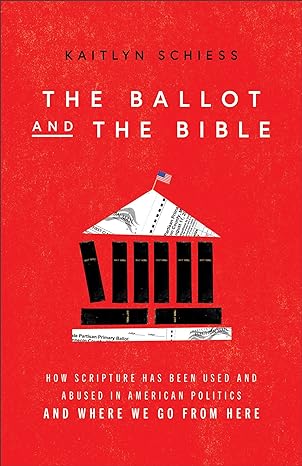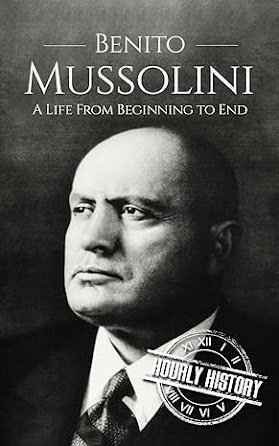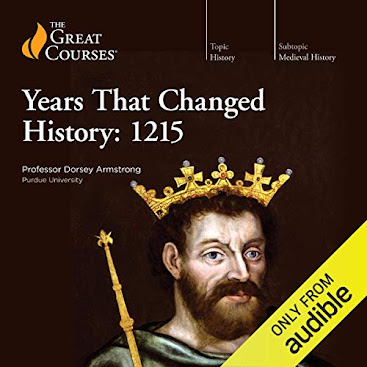A World Without Islam by Graham E. Fuller
Graham Fuller has a long history in the intelligence communities (27 years) and may be most famous for being the man behind the idea that led to the whole "Iran-Contra" affair (and an ironic mis-quote in Chapter 12 when he quotes Reagan as calling the Afghan mujahideen the "moral equivalent of our Founding Fathers" when he said that of the Nicaraguan Contras). This book is a response to the book The Clash of Civilizations and the Remaking of World Order by Samuel P. Huntington. Fuller makes repeated references to Huntington's most famous line from the book: "The bloody borders of Islam." Fuller contends that it is not Islam vs. the World but rather East vs. West.
I cannot disagree with Fuller's ultimate thesis - the East and the West are two civilizations (cultures, if you prefer) that are in tension with one another. That tension has been there since before Christ. The Roman Era exacerbated the problem by having two capitols - Rome and Constantinople. The church divided along that axis and the Roman Catholic (Latin) Church and the Greek Orthodox churches fought, or at least bickered, as often as not. The rise of Islam rose in the Orthodox sphere and largely assumed their anti-Western stance.
Fuller presents a compelling case and I cannot help but agree with almost everything he says, but I will point out a few troubling issues:
-In Chapter Three he notes that the beginning of East/West struggles begin with Alexander the Great's invasion of Persia in 334 B.C. Funny, I would have thought that he would have chosen events such as the Persian domination of Greek city states in modern Turkey and the Persian invasion of Greece in 480 B.C. (146 years earlier) made famous in the popular mind by the recent movie 300. Or, perhaps the Persian involvement in the last stages of the Peloponessian War (413-404 B.C.) where they interfered in the war, paid for a Spartan navy that defeated the Athenian navy and tried to make Sparta a client state.
But, there is a reason that he has chosen Alexander's invasion to start his history and not given the reader the entire story - his other thesis, and perhaps most important one is that the West is the reason for the West's troubles with the East, better known as Russia and Islam in the modern world. The West is always the aggressor. The East is always more inclusive and the victim of the West's aggression.

The Crusades? Only a precursor to Western Imperialism and definitely not a reaction to Islam's spread to Spain, its slow-mootion engulfing of the Byzantine Empire and its abuse of Christian holy sites and pilgrims.
How should the West have behaved? We are given the example of Russia - which Fuller claims as a model of ethnic and religious integration - for all religions , including Judaism. This is the same Russia that gave English the word "pogrom" to describe state sponsored violence against Jewish communities. Fuller refers to popular theater to support his thesis over and over again. He should have noted the movies Fiddler on the Roof and An American Tail before making too much of Russia's successes. On a similar note, he promotes the fact that Russian integrations worked so well that a million Muslims fought for Russia against the Ottomans in World War I but, on the next page, he also notes there was a violent uprising against "new Tsarist poliices that tried to force Muslims into military service." Well, which is it?
I think it is both, but Fuller tries too hard throughout the book to make certain facts conform to his thesis. These are not square pegs being forced into round holes. More like oval pegs being forced into round holes. They are sort of right, and, with a little careful trimming here and there they fit. There's a pattern: ignore Persia's pre-Alexander invasions of Greece, overlook legitimate Christian concerns about the spread of Islam at the expense of the Christian Byzantine Empire and the treatment of Christian holy sites and pilgrims, overstate Russia's success at becoming a multi-ethnic, multi-religion state. Why? If the truth is shaved a bit here and there, and with a little pounding, the pegs do fit in those holes - sort of, if you don't look too close.
Fuller does not mention, at all, the well-documented ethnic/religious strugges in Indonesia or Darfur. In fact, with the exception of Egypt, the entire continent of Africa is barely mentioned at all, despite its being one of the more fluid and contentious areas of religious turmoil in the world.
What does Fuller get right?
A lot.
Alexander did spread a thin veneer of Western values over the Middle and Near East and it was resented - just look, for example, at Judea's continued reaction to Hellenic rule, from the time of the Maccabees through the multiple rebellions against the Romans. Were the Crusades all about religious fervor? Clearly not. Lots of money was made (by such groups as the Knights Templar), reputations were made (Richard Lionheart) and landless knights were able to carve out kingdoms in the Middle East (at least for a while). Was Russia better at integration than such multi-religion states as Spain? Clearly so- Spain expelled all of the Jews and Muslims. But, let's not pretend Russia had it all figured out, either.
His history and comparisons of Christianity, Islam and Judaism are well-written, despite the biases noted above. Read carefully and you will learn a lot.
Much to his credit, Fuller does not only offer criticism. He also offers thoughtful advice on how to proceed in the future. It makes sense and has given me lots to think about. I also appreciated the last paragraph in which he notes that secular violence has been much worse in our recent history. World War I, World War II, the Nazis and the Communists were all secular and were responsible for the deaths of tens of millions. "We in the West will be on a sounder path if we can de-Islamize our perceptions of regional issues and view them simply as universal human social and political problems for which we, too, share some responsibility."
I give it three stars - this would be a 5 star book but I have to take away one star for the "shaving" of facts I mentioned above and I have to take away another for not mentioning much of anything at all about Africa or Indonesia and Bangladesh - these areas alone account for more than a third of all Muslims, have been the source of a lot of violence and tension and should have been considered when having any sort of discussion about "A World Without Islam."
This book can be found on Amazon.com here: A World Without Islam.
Reviewed July 9, 2010.
3 stars out of 5.










Comments
Post a Comment